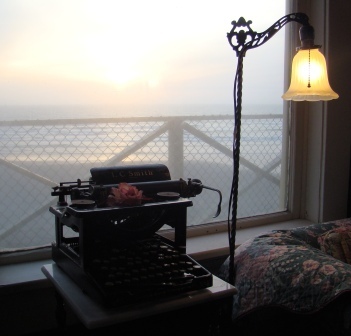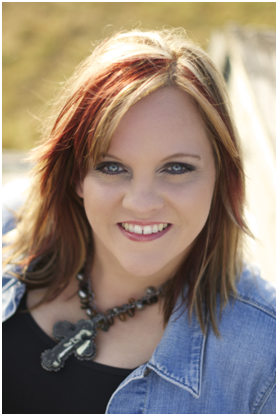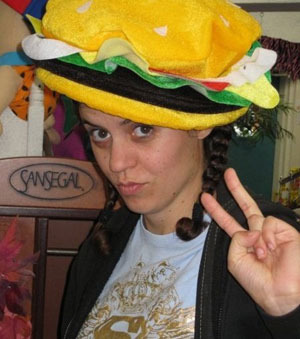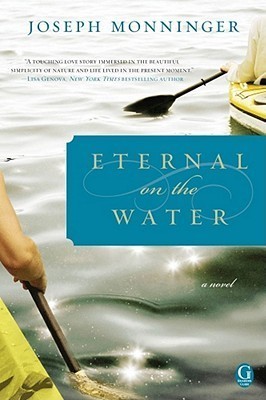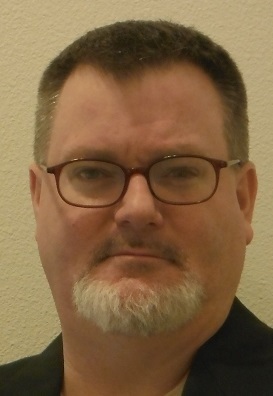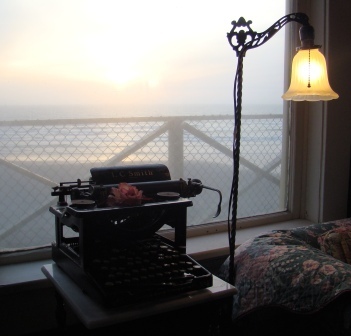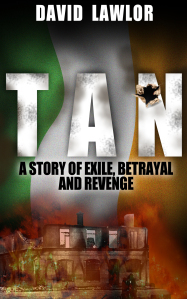P.C. Zick's Blog, page 44
August 21, 2013
Author Wednesday – Jana Grissom
Welcome to Author Wednesday. Today I interview Jana Grissom, who is about to release her first Young Adult Fantasy One Price; Two Kingdoms in the fall. Her extensive work with teens makes her the perfect person to write books about their experience while giving them a whole new world to explore through reading.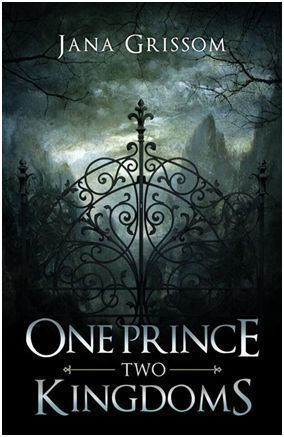
Welcome, Jana. Please tell us about your vision of yourself as a writer.
I want to impact readers by taking them through an exciting journey that shows the main character conquering fears and overcoming obstacles to accomplish their dreams. After reading one of my novels, I want the reader to walk away with a new sense of hope and value as an individual. I have worked with teens for more than fifteen years, and I know self-esteem is the primary struggle in their world. They feel inferior or unloved. I am here to tell every teen (and adult!) that they are valuable and able to take whatever world they live in and make the best of it! They are powerful enough to construct their own future by setting a goal, committing, and never giving up!
That is such an important message to bring to teens and adults. Give us a little information about your new book.
My debut novel, One Prince; Two Kingdoms, takes readers into the life of a foster kid who overcomes adversity and fights for the future of everyone. Johnny Boggs is a teen with trouble to spare who has learned one thing in life – trust no one. Paranoia befriends him as he moves into his fifth foster home and discovers no one appears as they are, his dreams are not just dreams, and he is supposedly the Prince of Shamayim.
On Johnny’s sixteenth birthday, fate requires him to leave the protection of this world but allows for him to choose to reign over the light or turn to the darkness. A vicious competition begins as two kingdoms fight for his loyalty while two beautiful girls, Danielle and Shay, fight for his attention. Time is running out; a decision must be made. Johnny finds it impossible to resist the beauty of his dreams, nor can he turn away from the one who has his heart.
It sounds like an exciting plot. What is the best thing someone could say about this book?
That it made a difference in their life, encouraging them to keep going even when the whole world seems to be against them. One Prince; Two Kingdoms was written based on real life experiences. My family and I were foster parents for more than four years. We loved and protected more than twelve children in that time. Each one had their own struggles yet they never gave up; neither will Johnny. He will choose a kingdom, and he will make his future into whatever he desires. Each one of us has that same choice! I hope this novel inspires everyone to take charge of his or her destiny.
Explain how this book was conceived in your imagination.
One Prince; Two Kingdoms came about as a result of disturbing nightmares two of my foster children were experiencing. After several nights of being awakened by their screams and running to comfort them, I had an idea – write a story and let their imaginations defeat their fears. The children were excited to hear stories of magical worlds and powerful celestials (the Grissom’s aka my family) sent to guard them. Each night before bed, I would add new scenes and more adventures. After a few weeks, the nightmares were replaced with excitement to hear the next chapter read.
That’s a wonderful story in itself, Jana. I’m sure those foster kids have never forgotten you and what you gave them. What else do you want readers to know about your book?
I never dreamed of publishing until working on a project with my middle school students. We were writing and I shared my novel that I had written a few years earlier with them. They were captivated, and I was surprised. They helped me edit it one more time and then we, as a class, sent the email to a small publisher with great anticipation. Honestly, I did not expect a reply. I was sending the manuscript to encourage my students to chase their dreams and look, it happened! I received an email back offering a contract. Boy, was I surprised and could not wait to show my class. Needless to say, we cheered and had a party! Now we impatiently await the arrival of the novel. (Especially since each one of my students has their name as one of my characters in One Prince; Two Kingdoms.)
What an unusual and exceptional way to help guide your students to a love of reading. You are truly an inspirational teacher. Is there one book or author with whom you identify or hold up as your standard-bearer?
Author: Frank E. Peretti
I was inspired as a teen when I read Piercing the Darkness. Each night, I read until my eyes refused to stay open. I was enamored with the parallel spiritual world existing around the people. I have continued to read his work and love the deep morals. It is like being on a literary treasure hunt to find hidden diamonds of wisdom. It is my deep desire to write amazing literature that can be categorized alongside Mr. Peretti. (I think I would faint if I ever met him!)
When you’re not busy teaching or writing, what do you do during your down time?
Even if it is just a drive to a Texas State Park, I love to spend time with my family and travel. They are my world. Right before this interview, I was at my son’s first high school football scrimmage! Go Wildcats! Our next adventure will be moving my daughter to college. By my side through everything is my high school sweetheart and husband, Roy. (Yes, ladies, fairy tales can come true if you wait for Prince Charming!)
I agree with you there, Jana. Thank you so much for stopping by today and sharing your amazing story. I wish you lots of success with the publication of One Prince; Two Kingdoms.
About Jana Grissom: Jana is a middle school teacher, an advocate for foster children and at-risk teens, a mom of two amazing teens, and married to Roy, her high-school sweetheart. Jana holds a Master of Education in Administration and Policy Studies and offers professional development in bullying identification, prevention, and intervention. She is available to speak to students at secondary schools about the writing process or bring a message that challenges them to S.T.O.P. bullying and suicide.
Where to find Jana:
Website: https://sites.google.com/site/1prince2kingdoms/
Blog: anovelreality.blogspot.com
GoodReads: https://www.goodreads.com/user/show/21133166-jana-grissom
Facebook: https://www.facebook.com/1Prince2K and https://www.facebook.com/AuthorJanaGrissom
Twitter: https://twitter.com/janagrissom
LinkedIn: www.linkedin.com/in/janagrissom
Purchase links for One Prince; Two Kingdoms will be available October 31, 2013, on Amazon and B&N.


August 14, 2013
Author Wednesday – Jae Dansie

Sketch of P.C. Zick by Jae at Lit and Scribbles
Welcome to Author Wednesday. Today I’m delighted to host a guest post from Jae Dansie who writes one of my favorite blogs, Lit and Scribbles with Jae. Jae writes helpful posts about the writing process, and she always adds an element of whimsy to my morning blog reads. She’s also the artist of the only caricature (that I’m aware of) of myself as writer. One of the most surprising things about writing a blog has been the wealth of colleagues I’ve met and now call friend. Jae falls into that category. I hope you enjoy her post today on editing. She’s spot on with her advice.
Editing Smackdown
By Jae Dansie
A special thanks to P.C. for inviting me to post on Author Wednesday. She’s a person I always enjoy hearing from because she has much wisdom and experience to share when it comes to this writing business.
Editing. Is it a word you dread or embrace?
I thought editing meant finding typos and grammar errors. I didn’t realize that real editing and revising was about to smack me down, and smack me hard.
I’m making this sound a lot worse than it actually is — and yet at the same time, I’m not. Thick skin should be a requirement for a serious writer, but along with that, the humility to accept that gold liquid doesn’t drip out of our pens on the first draft.
SMACK #1
I got minor feedback from friends, worked hard on making my novel the best it could be, and queried it out. I received one or two partial requests, but in the end always rejection. I feared the idea of self-publishing, because I always thought traditional would be my path. But I had a few friends who self-published and had reasonable success. Maybe it was time to try that route.
I learned a coworker of mine did editing professionally and (thankfully) decided that if I was going to self-publish I should certainly put my novel through a professional edit. She definitely put me through the ringer, but I was hungry for improvement. Whatever it took to have the best story possible, I was determined to do it.
I learned a ton! I consider it one of the best experiences of my writing life.
When she and I were getting close to the end of my novel (at this point it was about 77,000 words) I made plans to attend the Backspace Writers Conference in NYC. I intended to give traditional publishing one more go and was especially eager to have a chance to interact with NY agents.
This brings me to…
SMACK #2
New York City. Bustling, beautiful, and big. A fantastic place to hold a conference! I felt confident, knowing I’d had my book edited, and I’d worked hard on polishing it. I was ready to dominate this conference. Dominate, I tell you!
Only I didn’t.
If you ever need an ego smackdown, go talk to NY agents about your book. They aren’t purposefully mean, just profusely honest. It hurt. I had to go into the ladies’ room immediately after the session to let tears fall I had desperately held in. I attended a couple more one-on-one sessions that pointed out the same mistakes. The bottom line: I wasn’t ready for publication, and I knew it.
I learned a lot from the conference. I took home many gold nuggets of wisdom. The problem was I still thought I was in control of my timeline. I wanted to be published. Yesterday, please! But my story just wasn’t ready. It took me a few weeks to come to terms with that. I played video games like crazy, leaving my novel locked in a drawer until I was ready.
SMACK #3
I know, you were hoping I only had two major smacks to endure. Remember what I said about thick skin and humility? The first two smacks gave me humility and I came to appreciate the feedback I received.
I spent the whole summer after the conference rewriting my novel. It got a serious makeover, with major changes in plot, character, and structure. It was still the story I wrote, and yet not. But it had evolved to something greater and it made all that pain from NYC worth it.
I heard about a contest called Pitch Wars. The “winner” would be mentored by either a published author or industry professional. The mentor would read the whole thing, give feedback, and work to help the entrant polish a pitch and the first 250 words for participating agents. Elation! I got selected!
Then came the feedback. Encouraging, but very thorough. My mentor is a particularly fantastic editor. She found weaknesses I’d been blind to and once I’d carefully considered her words, I realized I had a slightly ominous task before me. I had a month to make revisions before the contest deadline.
Did I get any agent requests? I did. A full. Ultimately she passed, but I still came home a winner. I had a much stronger story than I had both before the NYC conference and after. Success!
THE SMACK CONTINUES
A more naive version of me would love to tell you that you’ll outgrow this pesky need for editing. That at some point you won’t have to edit anymore, because your skill will be so great. But the more seasoned me knows that isn’t true — at least it shouldn’t be, not if you’re fully committed to your craft.
I’m currently in the midst of more revisions. I had a good friend critique my whole book and guess what? She found more weaknesses. But I’m not discouraged. In fact, I think this time will be the version ready for publication.
Instead of fearing feedback and change, I embrace it. I enjoy the editing process. I’ve enjoyed seeing what the story has become and how much stronger it now is. I could no more separate it from the writing process than I could cut all sleep from my life. It is necessary and the sooner I learned to embrace it, the happier my writing life became.
Embrace the editing. Do it for your readers, but above all, do it because your story deserves to be the best it can possibly be. After all, it chose you to tell it. Tell it well.
And that’s why I love Jae Dansie so much. She’s honest, and she understands what it takes to be an author. I can’t wait to see her final work after all the smackdowns. Thank you, Jae, for sharing your experience with us today.
About Jae Dansie: Jae is a graphic designer, doodler, and writer. Jae wrote her first novel when she was 14 and has probably written a dozen or so in between which she calls “practice.” She’s in a love/hate relationship with her current novel SHADE but knows it’ll all be worth it in the end. When Jae isn’t doodling (she calls it scribbling) and obsessing over her WIP, she likes to karaoke, travel, and tantalize her tastebuds with tasty new treats. You can find Jae on her blog at Lit and Scribbles, or out patrolling the streets for truth, justice and the American way.


August 9, 2013
Book Review Friday – Eternal on the Water
I loved Eternal on the Water by Joseph Monninger. It may not be for everyone, unless you love nature, wildlife, Thoreau, travel, and love. The title first caught my attention as the book lay on the bargain table at the local bookstore. You never know what gems lie in wait in the those bargain bins. This book went from that table to my table of books to read at home. I finally picked it up a few weeks ago, and the love story of Cobb and Mary immersed me in their meeting on the banks of the Allagash River in Maine. Cobb was there to kayak a river traversed by his hero Thoreau in the last years of his life. Mary is there to study the crows, her life’s love prior to meeting Cobb.
Mary tells the myths of the crow that captivate a special group of young woman brought together by illness and bonded through the experience of living in the wilderness of Maine for a few weeks each summer. The majesty of bears plays a role in the beautiful love story between two people and their unlikely journey for eight years.
From the beginning, the reader knows the ending. The author surprises the reader with how the characters came to the point of the ending. Some might consider is fanciful and unrealistic. That’s all right. All that matters is that I enjoyed the book thoroughly and look forward to reading other books by Joseph Monninger. It very much reminded me of Suffer the Little Children by Christina Carson.
Speaking of authors I’ve featured on Author Wednesday, I’m far behind on my reading schedule of these talented Indie Authors. Currently I’m reading Christoph Fischer’s The Luck of the Weissensteiners.
Next on my to-read list:
Daughters of Iraq by Revital Horowitz
The Golden Grave by David Lawlor
Buried a Man I Hated There by Adam Pepper
Okotibbee Creek by Lori Crane
Fugue in C Minor by Vince Dickinson
Dirty Laundry by Marilyn Slagel
Are you reading some good books this summer? I go in spurts with my reading but I’m always looking for good books to read.


August 7, 2013
Author Wednesday – Vince Dickinson
Welcome to Author Wednesday. Today I interview Vince Dickinson who is the author of Fugue in C Minor, a romantic thriller. The main character finds himself in the perfect life, but he can’t remember how he arrived there. 
Welcome to Author Wednesday, Vince. I’m wondering if, like many authors, you have any special writing rituals.
I like to have a large mug of coffee or iced tea next to me. I can’t deal with any kind of distractions when I’m writing. I take my Netbook with me to the patio when I write.
I don’t like any distractions either. It’s always interesting to learn how authors discover their voice in writing. When did you first discover your voice as a writer?
The first thing I ever wrote was a “poem” about Vincent Van Gogh when I was thirteen. My English teacher posted it in the parent newsletter, and I was hooked. I started writing short stories and poems throughout my teens. And then in college I got serious about writing a novel. I started listening to people’s conversations and understanding the natural ebb and flow of dialogue. I think this is still my greatest strength as a writer, and a huge part of my voice.
Why have you chosen to write about a man losing his memory in Fugue in C Minor?
Twelve years ago I was laid off from a great job in high tech. Unemployment wasn’t much. I lived in a small apartment in a posh part of Portland then. I’d go for walks and see these beautiful homes with Porsches, Hummers, and BMWs parked in the driveways. I was a little jealous, so I wondered, what if you had everything, but you didn’t know where the keys for the Porsche were? Or you had a sexy spouse, but couldn’t recall her name? And what if your memory started to return, and you had reason to doubt that you belonged there? I was working on another novel at the time, so I set this idea aside. But I picked it up again about a year ago and dove into that doubt and suspicion. One of the questions that struck me as I composed was, “Could you be intimate with someone you didn’t know well?” Exploration of intimacy and the capacity to connect with another person have always been central to my writing.
Sounds very interesting. I can see why you had to get back to this topic. What kinds of techniques do you like to use in your writing?
In my last three books I have been inserting little Easter eggs into the story; things that casual readers might miss, but that detail-loving readers will catch and put in their basket. It’s important to have a very visual setting, believable characters, dialogue that reveals and drives the plot, but I think it’s also important to have these connective motifs. It’s like finding a chocolate kiss in your trail mix granola!
What is the message conveyed in Fugue in C Minor?
Most people find it easy to float through their lives without latching on to anyone or anything too tightly. There’s risk in attachment. I think love and passion are worth the investment, even if we fail and lose. I think being alive is more than just having a job and a place to sleep. Life is about experiencing awe and wonder, whether it’s in seeing the Grand Canyon or kissing a person you love. My books reflect that belief.
That’s a great message to convey. To return to the grace of a child is my goal in life. What book are you reading right now?
I have David Mitchell’s Cloud Atlas and your book, Trails in the Sand, on my desk right now. I snack on books more than eating a meal. I just finished reading Liam Callahan’s Cloud Atlas, which my wife bought for me thinking it was the other Cloud Atlas. I loved it! Now I have to start snacking on the Mitchell book. And I can’t wait to see how your Caroline works out her own problems!
I hope you enjoy all of the books on your “platter,” Vince. Fugue in C Minor is in my Kindle queue right now, and I look forward to reading it, especially after getting to know a little bit more about the subject. Thank you for stopping by today. Best wishes on all your future projects.
About Vince Dickinson: Vince holds a BA in English from Northwest Nazarene University in Idaho, where rain is uncommon. But these days he lives in the Willamette Valley in Oregon with his beautiful wife and kid.
Links and Contact Information:
Paperback version of Fugue in C Minor
Blog: The Creative Revolution


July 31, 2013
Author Wednesday – Revital Horowitz
Welcome to Author Wednesday. Today, Revital Horowitz stops by for an interview. I first about Revital from Christoph Fischer when he reviewed Daughters of Iraq and its author Revital Horowitz on his blog. Daughters of Iraq is historical fiction based on Revital’s family’s story. 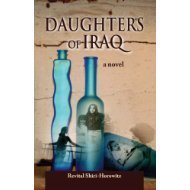
Welcome to Author Wednesday, Revital. It took me quite awhile before I recognized my “voice” as an author so it always interests me to discover how other writers “hear” their voice. When did you first discover your voice as a writer?
As soon as I sat down to write my first novel Daughters of Iraq, I discovered that I had a voice, and that my voice needed to be heard. When I first started writing, I had a vision, and I had a mission to complete. I knew that my family history should be told, and after giving it a lot of thought, I decided that the best way to reach the most people I could reach, and tell this story, should be through a historical fiction book. I thought I learned best through stories, and now that I even think about it more, I realize that stories from generations to generations keep history alive even before the invention of paper.
I saw my voice as the voice of so many silent voices that are forgotten. I thought that telling the story of the Jews of Iraq would put those people on papers of history, and without it, they will forever be lost. I admit it was and still is a heavy weight on my (not so wide) shoulders. I wrote the story, and I give lectures all over the world to whomever invites me, and I tell their story, and I revive some Jewish history past that is hidden, and not so well known as the European Jewish history part. But, there were Jews all over the world, including in Arab countries. You will not find many of them today in Iraq, Syria, Lebanon, Tunisia, Libya and other places. If you are interested in learning why, you will find some answers in my book.
It is a noble pursuit and one worth pursuing. Even though you had this vision, when were you first able to call yourself a “writer” or “author?”
It took a very long time for me to realize that I am actually an author, and this title really describes who I am. Besides being a mom, a wife, a daughter etc., it was the first time in my life to really appreciate what I have done with my life for myself. I am very proud and happy to carry the other titles too, but this one is was totally mine and for myself, and I love so much what I am doing. I love writing, and I love passing my ideas and thoughts to others. I see that as one of the best gifts I’ve ever received in my life.
It’s wonderful you were able to heed the call. Not only do you give a voice to a voiceless people, you also gave yourself a voice as an individual. How did you come up with the title of Daughters of Iraq?
Daughters of Iraq was written as an honor to life and women who are forgotten. I wanted to expose their story to the public, and was able to do so through the book I have written. It is a story of three women and two generations, and for me, being an immigrant myself (I moved to the United States from Israel), I was able to go deep into emotions and even places I have never been (Iraq), and yet be able to describe the lively Jewish life more than 150,000 people have experienced. Being an immigrant is a very unique experience that so many people go through, and yet it’s so hard to pass the feelings of not being understood, or not being able to describe feelings and places to other people who have not experienced it. It is very different then visiting a place, and it is more of bringing your traditions and country with you. This is how those women felt when they immigrated to Israel, and so many times it was hard to close on gaps between generations, when parents were raised in different places than their kids.
I can only imagine how difficult that must be, but through books such as yours, we can attempt to understand the experiences of others. What is unique to your book? What do you think people who buy your book find in it? Why do they like it?
I think there are a few unique things in the book. First, it takes the readers back to Iraq of the mid-twentieth century. It also takes the readers back to historic events in Iraq and in the newly established country of Israel. The book bounces between places and time, and I really like reading those kind of books, and know by now that many readers like it, too.
Are you working on something new?
Yes, I am. I am actually on the final steps of my second novel Hope to See You Soon. It is a story of two women who are best friends. One lives in Israel and the other in Seattle. The book explores what time has done to their life and friendship. Each one of them was jealous of the other for many years. One is jealous for not traveling and staying in one place, and the other one is jealous for that same reason, but from the other side: She wished she would have stayed in one place. It is interesting to see that after all, everyone has their own destiny and needs to be happy with their own lives.
That is so true. It’s taken many years to realize that grass is never greener somewhere else. I’m sure this book will be a very interesting exploration of that discovery. I’m so happy you stopped by for a visit today, Revital. Congratulations on the success of Daughters of Iraq and finding a way to express the experiences of those who are no longer able to tell their stories.
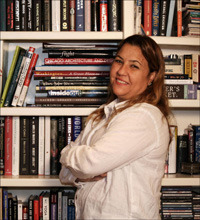 About Revital Shiri-Horowitz: Revital Shiri-Horowitz is an experienced teacher and presenter to Jewish communities and audiences. Using her own life story and excerpts of her novel, Revital Shiri-Horowitz generates a warm and uplifting experience for the listener. Her overall mission is to connect her audiences to their roots so that they can be closer to themselves.
About Revital Shiri-Horowitz: Revital Shiri-Horowitz is an experienced teacher and presenter to Jewish communities and audiences. Using her own life story and excerpts of her novel, Revital Shiri-Horowitz generates a warm and uplifting experience for the listener. Her overall mission is to connect her audiences to their roots so that they can be closer to themselves.
Revital Shiri-Horowitz was born and raised in Israel. As a kid, she wrote poetry and short stories. She’s been writing in her journal almost every day since she was nine years old, and up to the time she met her husband, but never imagined that one day she would become a published author in more than one language, and in so many countries, and even continents.
Revital went on to earn a BA in Hebrew Literature and Geography from Tel Aviv University, an MA in Geography from Haifa University, and an MA in Hebrew Literature from Tel Aviv University.
She was an assistant professor of geography in Haifa and Tel Aviv Universities, and has been an editor for Hebrew-language books.
Based in Seattle, Washington, and in Israel, Revital is the mother of four boys, married to Amnon for twenty years, writes poetry, runs a blog in “Haaretz,” an Israeli newspaper, and is working on a second novel.
Links:
Daughters of Iraq purchase link (Amazon)
Website: Revital-sh.com


July 24, 2013
Author Wednesday – Melissa Mayberry
Welcome to Author Wednesday. Today I interview Melissa Mayberry, the author of Mellifica: Devastating First Love, a Young Adult (YA) romance. Melissa is a very busy mother, nurse, and writer. I’m very impressed with her ability to juggle it all.
Hello Melissa. I’m honored you found time in your busy schedule to stop by my blog. I’m always interested in the moment when a writer first claims the title. When were you first able to call yourself a “writer” or “author?”
In high school, I wrote some poetry for the school newspaper. That was my first publishing and my last for about twenty years. Even though Mellifica has been published, I haven’t gotten into the habit of saying that I am a writer. Maybe when writing is all I do, then I will be comfortable calling myself a writer.
It might come before that, and you’ll be amazed at the feeling when it happens. What are your writing rituals?
I’m a day-sleeper, night-shift nurse. So, on my nights off, I write. I love the quiet house and the spooky ambiance from the stillness.
It sounds as if you’ve found the perfect time for you to create your stories. Rachel Carson (Silent Spring) said she never chose a subject because as a writer, the subject chose her. Describe a time when a subject chose you.
This is so true, especially for me. If it wasn’t for my story line blatantly presenting itself, I may have never bothered to write again.
See – you are a writer. You had no choice. Do you have a favorite character that you created?
I’m a mother of four, so I liken this question to motherhood. Each one of my characters has a special place in my heart. Some I love to hate. Some I’d love to be and others, I love them and wish they were here. If I’m not feeling any attachment to the character, I wouldn’t expect my readers to either. So, I either have to ditch them, or make them special.
I always say my favorite characters are the ones I’d like to be. What’s the best thing said about one of your books by a reviewer?
When I sent a query, one guy explained to me that he was this beefy guy that rode motorcycles, but he was shocked that he couldn’t stop reading the chapter I sent him because it was a YA romance. I love that even men like my books.
What’s your one sentence pitch for Mellifica: Devastating First Love?
Heartbreak plagues Melissa when her high school boyfriend dumps her for a teacher’s wife.
Sounds intriguing. How did you choose the title? Has it been the title from the very beginning?
Mellifica has been the title, but I added on Devastating First Love after reading a review. Mellifica is the nickname given to me by the antagonist in the book.
How long do you estimate it took you to take the book from an idea to a finished, published?
It took well over two years. I hadn’t written in so long that I had to learn the process all over again. When I started, I thought I would catch on right away, but it took me a few tries.
That’s not too bad considering you only get to write a couple of nights each week. Is the book traditionally or self-published? Why did you choose one over the other?
I went with the traditional publisher after publishing it myself. The plan was to send out a certain number of queries and if I had no response, then self publish. An answer came about a week after I self-published. Ultimately, I went with them because they were awesome and offered a better deal than most publishers.
What is the message conveyed in Mellifica: Devastating First Love?
My main character is so fickle it drives me crazy sometimes, but she has a reason for that. She has no self-esteem. If you learn anything from her, it’s not to let your ego guide you; let your heart.
What is the best thing someone could say about this book?
I love to hear that it’s inspiring. That was my intention—to inspire people to take their destinies into their own hands and reap the reward.
How Mellifica was conceived in your imagination?
Mellifica is based on a true-life situation. From there, characters were fictionalized to provide privacy to the innocent.
What type of research did you do in the writing of this book?
All my research was from my head. Some people flipped out about how things were back in 1992. “You can’t write about people smoking in a restaurant.” Really? Things were different then.
Who or what is the antagonist? Did you enjoy creating this character?
The antagonist, Arien, was so much fun to write. After all, in real life he was an ex boyfriend. I spent so much time solely devoted to detailing all his little quarks. Revenge is sweet.
Without giving us a spoiler, tell us a little bit about your favorite scene.
One of the most heart-wrenching scenes in my mind, is where Sandy is trying to get Mel to leave Arien. He brings her a cupcake to school and somehow manages to look incredible while doing it. His ploy almost worked, but ended with Mel saying some pretty cruel things to him. I think it’s my favorite because Sandy was incredible inside and out, even holding a pretty little cupcake.
What else do you want readers to know about your book?
Book one has been out for about six months. I am working hard and hoping to have book two published by early fall. Book two has exciting life changes for everyone, followed by an ironic and sad twist of fate for one of the main characters.
[image error]About Melissa Mayberry – Melissa believes in living a full life. As a wife, mother of four, full-time nurse, and grad student, a story presented itself to her in such a way that she had to become a writer as well.
Learning and growing through her work, Mellifica: Devastating First Love is the first of two books chronicling a sordid love affair with a tragic, yet ironic ending.
Author Links
Website and blog: MelissaMayberry.com
Facebook: Melissa Mayberry / Mellifica
Twitter: @MayberryMelissa
Email: Mayberrymelissa@rocketmail.com
PRODUCT LINKS TO BUY BOOKS:


July 22, 2013
How Much Background Is Too Much in a Novel?

Sketch of P.C. Zick by Jae at Lit and Scribbles
I’m happily working away at the new novel these days. When I wrote the original concept back in 2006, I provided lots of background research on Florida and the Everglades. That’s the way I’ve always written, even when I was a reporter. I regurgitated all the new and old knowledge onto the page in a very rough first draft or outline of a new piece. Then I set about slicing more than half of what I’ve spewed onto the page.
Successful writing in any field or genre contains three essential elements. I call it the 3 C’s of writing. The elements are correctness, clarity, and conciseness.
Correctness – In journalism, accuracy is a key element (we hope). However, even in fiction, correctness is important. I read a book once where the author was describing a scene where the newly in love couple went kayaking – in a single kayak. He helped her in the seat and then the author wrote that the man jumped in the same seat behind his gal. Also, the couple – both experienced kayakers – were said to use “oars” rather than the “paddles” used in kayaking. I lost interest in the book at this point. Try jumping into a one-person kayak alone, let alone with another person, and remain unharmed, upright and dry, and I’ll eat an oar immediately. Correctness is essential in the details of a novel. If you chose a famous place for the setting, make sure you know that place and the names of streets and intersections. You can make up the name of hotels and restaurants, but be sure you know distances between places. Also, make sure that if you’ve set your novel in 1984 you haven’t created any anachronisms by having a character pick up a cell phone to make a call. I’m reading a book right now that I thought was set twenty years, ago but the author just mentioned Wikipedia and Craig’s List. I don’t think either of those were around then.
Clarity – Clarity goes along with conciseness in some ways. Make sure nothing in the novel confuses the reader’s understanding of the story. I don’t mean the confusion that might come from unraveling a mystery. The reader shouldn’t have to read a word, a sentence, or a paragraph repeatedly to make sense of what you’ve put on the page. I ask my Beta readers to point out any confusing areas by simply putting a question mark. Sometimes it’s as simple as a misplaced modifier, such as “Credit cards shall not be given to customers unless the manager has punched them first.” I misplace my modifiers often in the first draft, and just as often, I’m not the one to catch them.
Conciseness – Finally, I get to the reason I started writing this post. I’m struggling now with all that background information culled from reading, interviewing, or living. It’s sometimes difficult to realize that the reader doesn’t need and probably doesn’t care to know all I’ve learned before writing the novel. The reader simply wants a story to be told. I’m struggling right now as I turn that original draft/outline into a real first draft ready for Beta readers. That background information or exposition as it’s called by literary folks doesn’t all need to come at once or at all. The author decides where, when, and how much to tell. Some of it can come out in plot situations throughout the book. It’s one of the beautiful things about being an author. It’s also one of the most difficult. Beginning writers can sometimes be spotted immediately because they haven’t yet realized the importance of conciseness. I’m still learning after nearly two decades in this business. You don’t need to tell the reader everything you know. Not even close.
Here’s something I try to remember every time I write: Just because I put it down on paper, doesn’t mean I’ve carved the words in stone. That delete button is a one-finger press away. (But just to be sure I create a file for deleted passages.)
What do you think? Are these important elements in storytelling?
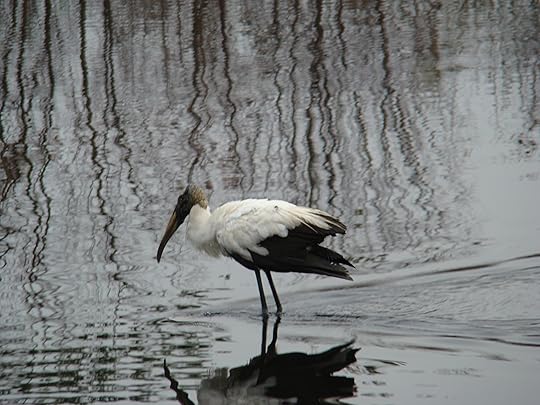
wood stork (Everglades)


July 17, 2013
Author Wednesday – David Lawlor
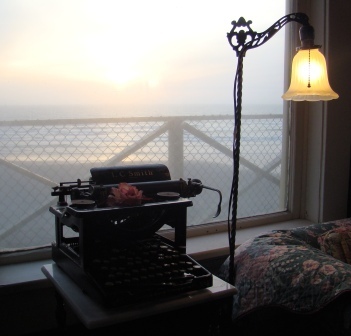 Welcome to Author Wednesday. Today I interview David Lawlor, the author of two historical novels published as eBooks. Tan is set during the Irish War of Independence, and its sequel, The Golden Grave, is set in the old battlefields of WWI.
Welcome to Author Wednesday. Today I interview David Lawlor, the author of two historical novels published as eBooks. Tan is set during the Irish War of Independence, and its sequel, The Golden Grave, is set in the old battlefields of WWI.
Welcome to Author Wednesday, David. I love something I read about the writer and scientist Rachel Carson (Silent Spring). She said she never chose a subject because as a writer, the subject chose her. Describe a time when a subject chose you.
When I started out as a journalist I heard the story of how the Choctaw Indians in Oklahoma had raised money for the Irish famine relief fund in the 1840s. Their generosity always stayed with me, and I knew that someday I would write about that story. It took ten years or so before I got round to it, but that became my first book.
That’s a subject that clearly chose you. Do all your books have a common theme or thread?
My first published book, Tan, told the story of Liam Mannion, an Irishman who served as a Black and Tan during the Irish War of Independence. The Tans were ex-WWI servicemen brought to Ireland as Temporary Constables. They became notorious for their cruelty. It was a time of great violence and brutality on all sides.
My grandfather was heavily involved in the War and the subsequent Civil War. He was actually tortured by the Tans and had a finger nail pulled out during interrogation. He was also a member of a firing squad during the Civil War so this period is close to my heart. I felt Liam had a much larger story to tell than just the one in Tan so I have now written about him again, in The Golden Grave, returning to the battlefields of France in search of lost treasure. I am working on a third book involving Liam, which is set during the treaty talks with the British in 1922. After that, I think Liam is bound to see more action in the Civil War that followed the treaty.
How incredible that you could take the seeds of your own family’s history and create several novels. You must have a great affinity for Liam. Explain how this book was conceived in your imagination.
A documentary about the excavation of a WWI bunker set the ball rolling. I wondered what you might find down there. From that, I developed the story of five war-scarred veterans returning to the crucible of the battlefield to dig for lost treasure and of how the ghosts of their wartime experiences haunt them.
What other type of research did you do?
The documentary was a great help. I researched tunneling techniques and bunker building and read accounts of what life was like in the trenches. I also studied photographs of the battlefields as well as maps of France and Switzerland, which is where the finale takes place.
The documentary served as your starting point for the rest. Who or what is the antagonist in your book? Did you enjoy creating this character?
There’s a femme fatale in The Golden Grave called Sabine. She runs a soldiers’ bar near the frontline. She is beautiful, sexy, and knows how to wrap a man around her finger. She is also extremely devious and will do anything to further her own ends. She was great fun to write.
I understand. I love creating devious characters. Without giving us a spoiler, tell us a little bit about your favorite scene in this book.
I liked writing the opening scene, in which a train hurtles through Flanders at night. The scene focuses on the driver and his coalman as they try to outrun a German artillery barrage. I wanted to convey the fear and tension of their predicament. They are on a steam locomotive so it was fun trying to capture the workings of the train and placing it in the ruined backdrop of war.
Where do you write?
On my fifty-minute commute into work, during my lunch break, and on the journey home. I aim for one thousand words a day – sometimes I reach that figure, sometimes not.
That’s amazing, David. Your goal is ambitious. How does your immediate family feel about your writing life?
My wife is resigned to it by now. I think that after I wrote my first novel she felt I had it out of my system. It was quite the opposite – I had been bitten by the bug! We have four young children, who are unaware of their dad’s pastime. I published my first book in April 2012, as my mum lay dying in hospital. She got to see press clippings about it, which.was nice. I dedicated Tan to her and my dad.
That’s wonderful, David. I’m sure one day your children will be well aware of their father’s other passion. Thank you for stopping by today. I enjoyed getting to know you a little bit better, and I look forward to reading your books.
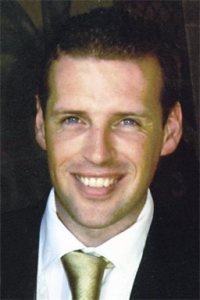 About David: I’m no historian, but I do like the subject (I even managed to get an Honors degree in it after much sweat and tears). I also like to write historical fiction. The idea is to collate interesting snippets from the past, things which spark an interest and maybe even a story or two. My day job is as an editor with a national newspaper.
About David: I’m no historian, but I do like the subject (I even managed to get an Honors degree in it after much sweat and tears). I also like to write historical fiction. The idea is to collate interesting snippets from the past, things which spark an interest and maybe even a story or two. My day job is as an editor with a national newspaper.
In the course of my research, I have come across what I think are interesting facts, which you might like to read.
Links
Blog: historywithatwist.wordpress.com
Twitter: @LawlorDavid
Facebook: http://goo.gl/vfYeI
LinkedIn: http://goo.gl/vbkbq
Goodreads: http://goo.gl/exwq7
BOOKS:
Tan: http://goo.gl/qs3yn
UK: http://goo.gl/xBMyl
The Golden Grave: http://goo.gl/qMCTa
UK: http://goo.gl/iIY1H


July 10, 2013
Author Wednesday – Adam Pepper
Welcome to Author Wednesday. Today I interview Adam Pepper, author of Buried a Man I Hated There. Adam describes his book as “a dark and unusual psychological thriller with a slight literary bent.”
Hello, Adam. I’m glad you stopped by today to talk about your book and your life as a writer. I’m always interested in how other authors view themselves as a writer. My vision includes the antique typewriter I use for Author Wednesday. What is your vision of yourself as a writer?
I’ve always been ambitious. I write to entertain but also to illustrate my own personal worldview in a way that compels readers to come along for the ride, either because they identify or simply find my view interesting. My books generally fall in the suspense genre, but I strive for something deeper and more memorable than a beach read. And yet, I never want my readers to feel bored or preached to. Any message must come across organically. Story first. Always.
I love that. While we are forced to categorize our books into genres, often those books don’t fit into the strict definition. Speaking of messages, what messages or themes do you try to convey to your readers?
My work tends to come from a cynical place. I don’t intend to be negative, but rather realistic. Human nature can range from ugly to silly, and I look to capture that range in my stories. Characters with the most depth propel the story forward but shallowness exists too and can’t be ignored.
What authors have influenced your writing and why?
Clive Barker for his imagination. Hubert Selby Jr. for his raw power. Kurt Vonnegut for his ability to make serious statements while being completely off-the-wall at the same time.
Setting can be used to great effect in novels. How does setting play a role in your stories?
Setting is crucial. Most of my stories are set in New York because I know it so well, and it’s a setting that genuinely interests people, even though it’s been used in fiction perhaps more than any other location. It’s a great city that lives and breathes and so there’s always room for another NYC story. In Buried, the story rotates from the city locale to rural Vermont. These two drastically different settings give the story needed contrast.
What other techniques do you like to use in your writing?
I think experimentation and creativity are keys to standing out. But I don’t like self indulgence. I’m known to play with tenses and points of view, and my stories aren’t always linear. But they are always coherent and fast paced.
I enjoy that, too. Now let’s talk specifically about Buried a Man I Buried There. What’s your one sentence pitch for your book?
When a devoted family man loses everything he loves, who is he?
It’s an interesting title. How did you choose it? Has it been the title from the very beginning?
My alternate title was Picnics in the Snow, which I loved, but I was afraid it sounded too much like a love story or romance novel. There is a very strong romance element to the piece, but it’s more of a dark suspense novel with a literary bent. The picnics are a huge part of the book and I was very attached to that title, but I was also afraid I would lose my audience with it.
Is the book traditionally or self-published? Why did you choose one over the other?
I spent more than a decade trying to break into publishing. I’ve had two agents, published in the small press and built up a healthy, grassroots following. But I never landed a deal from a big NY publisher. Buried received a lot of attention when I shopped it around a few years back. It sat for a while on my hard drive until I decided it was time to send it out into the world. I’ve self-published two other novels, a dark fantasy novel, Symphony of Blood, and a mob thriller, Skin Games. This book is a pretty strong departure from those books, but I believe it has the most depth and substance.
Where do you write?
I dream of one day having a “real office.” Something “writerly” with a globe, immense bookshelves, and a walnut desk. What I really have is a 5′ by 7′ man cave in the corner of my basement next to the hot water heater. It’s smaller than most prison cells, and it feels like one at times. But it’s home! And I’ve produced some good work while holed up there.
As long as you can write there, it doesn’t matter. A woman once told me she’d start writing once her husband built her a new house with an office. She’s still not writing. Thanks for stopping by today, Adam. It’s been a real pleasure to learn more about you and your work.
 About Adam Pepper – At times disturbing and grim, others raunchy and comical, Adam Pepper’s work is known for a unique blend of horror, suspense and speculative fiction. Memoria, Adam’s debut novel, reached No. 1 on the Dark Delicacies Best Seller list and received rave reviews from Cemetery Dance and Chronicle. “Super Fetus,” his outrageous Bizarro novella was called “In-your-face, allegorical social commentary” by esteemed reviewer, Paul Goat Allen. His quick-hitting short work has appeared in genre magazines including The Best of Horrorfind, Vol. 2 and Space and Time. Adam’s non-fiction credits span from New Woman Magazine to The Journal News. His recent publications include the mob thriller, Skin Games and the supernatural detective novel, Symphony of Blood.
About Adam Pepper – At times disturbing and grim, others raunchy and comical, Adam Pepper’s work is known for a unique blend of horror, suspense and speculative fiction. Memoria, Adam’s debut novel, reached No. 1 on the Dark Delicacies Best Seller list and received rave reviews from Cemetery Dance and Chronicle. “Super Fetus,” his outrageous Bizarro novella was called “In-your-face, allegorical social commentary” by esteemed reviewer, Paul Goat Allen. His quick-hitting short work has appeared in genre magazines including The Best of Horrorfind, Vol. 2 and Space and Time. Adam’s non-fiction credits span from New Woman Magazine to The Journal News. His recent publications include the mob thriller, Skin Games and the supernatural detective novel, Symphony of Blood.
Links to Buried a Man I Hated There
Amazon: http://amzn.to/111k7xw
Amazon UK : http://amzn.to/ZUYTF6
Kobo: http://bit.ly/151LQTd
Follow on twitter: @AdamRPepper
Learn more about Adam at his website: www.AdamPepper.com.
July 8, 2013
Beach Driving and Other Atrocities

sea turtle (loggerhead) hatchling (Photo by P. C. Zick, 2006)
Today I’m working on my next novel about Florida and its fragile environment. Native Lands begins when Mangrove Mike notices the sound of machines ripping apart his beloved and sacred Everglades. He brings it to the attention of his friend Barbara, who is an environmental columnist for the Miami Herald. Meanwhile, further north in St. Augustine, an environmentalist turned politician uncovers a development that is ripping up wetlands near his home. Through a series of events, the two parties join together to stop the destruction of the natural world they treasure.
One of the environmental issues I address in the novel is beach driving. Unfortunately, too many Florida beaches still allow vehicular traffic on its beaches, although during sea turtle nesting season – May through October – the hours are curtailed so as not to have lights on the beach when sea turtles come ashore to lay nests and when the hatchlings come out of the nest to march to the sea. But the traffic from a typical summer day is intense, and those vehicles leave ruts in the road and disturb the habitat for not only the turtles, but for the nesting shorebirds as well. Many species of both turtles and shorebirds are endangered, which means they are on the brink of extinction. Disturbing the habitat where they engage in reproducing the species can be devastating.
In my novels, I try to educate as I make environmental issues a part of the plot. Here’s a little excerpt from Native Lands where the Booth family of St. Augustine volunteer once a week for sea turtle patrol.
The Booths drove the deserted A1A Highway before 6 a.m. on Saturday. They drove south to Crescent Beach, past rows of condominiums blocking the view of the Atlantic Ocean. When they arrived at the public parking area, a vehicle from the Florida Fish and Wildlife Conservation Commission sat alone in the otherwise empty lot. When they pulled in next to the van, Peggy, the biologist in charge of the sea turtle program, climbed out of the driver’s seat and struggled to shut the door on the van against the winds whipping off the ocean.
“It’s churning out there this morning,” Peggy said. “The sand’s blown over the dunes so even if something happened last night we probably wouldn’t be able to see the tracks. We only have a couple of nests so far, but we want to be able to find them once the wind settles down.”
“We might be doing this quite often this year, if the reports about the hurricane season pan out,” Daniel said. “What if we get a hurricane here?”
“We do the same thing. We reinforce the tape and posts around the nests and hope they survive the tides and winds. Then we go out as soon after as possible to make sure the nests can still be found and later to check for hatchlings,” Peggy said. “Let’s hope the predictions are wrong.”
“I heard this morning that we’re feeling the outer bands of Tropical Storm Claudia,” Emily said. “It’s headed straight for the Florida peninsula.”
“It’s so early in the season, I doubt anything will come of it,” Peggy said. “But still this is good practice in case we get something later in the season.”
“Peggy, I got a call from Tim down in the Everglades,” Daniel said. “Seems one of our little crabs managed to wash up on the docks down there.”
“I heard,” Peggy said. “Amazing, isn’t it? OK, let’s get organized for this morning’s walk. It’s probably going to take a little longer than usual because I need all the walkers to make sure the current nests are securely marked.”
The female sea turtle trundles from the sea starting in May continuing through October to lay eggs on Florida’s beaches. However, most of the nesting takes place during the first part of the season. During the later months, the patrols look for signs of the hatchlings emerging from the nests. In the first months of the season, the volunteers look for tracks indicating a sea turtle came ashore to lay eggs the night before.
“I guess we’d better walk slow and closer to the dune line,” Janie said. “Maybe we should spread out more.”
A female sea turtle comes onshore during the night and using her front flippers, pushes aside the sand before using the hind flippers to make a deep hole large enough to deposit 100 to 120 eggs. She then pushes the sand back over the eggs and hightails it back to the sea. She might come ashore several more times during a season to lay a nest during the summer nesting season, but she will never return to the nests already laid.
Instinct brought her to the site of the nesting because most likely at least thirty years earlier that same turtle emerged from a nest in the same approximate location.
When Janie learned about the habits of the loggerhead – the most common of the sea turtles to come up on the beaches of St. Johns County – during her training the year before, she became passionate about keeping the beaches free from danger for these ancient ocean dwellers.
“If the beach is changed in any way, wouldn’t it confuse the mother and cause her to go back to the sea?” Janie asked her father one night soon after they began doing the patrol.
“Yes, that’s why they ask residents to keep the lights off on their houses.”
“And what happens if the female can’t get over the tire tracks to the dunes to lay her eggs?” Janie continued.
“I’m not sure, but I would bet it disrupts the natural order of things,” her father said. “It’s more of a problem for the hatchlings trying to crawl over those ruts to the sea. The longer it takes for them to march to the ocean, the more susceptible they are to predators.”
“What predators?” Janie asked.
“Ghost crabs, dogs not on a leash, and vehicles driving on the sand.”
“I wish they wouldn’t let anyone drive on the beaches,” Janie said. “Can they shut the beaches at least during nesting season for both the turtles and the shore birds? Some of the birds that nest here are endangered species, too.”
“They won’t do it as long as the tourists demand access with their SUVs, but I’m not opposed to helping you fight the battle.” Daniel put his arm around his daughter and smiled.
Emily knew Daniel felt pride in Janie for her willingness to fight for the defenseless sea turtles and birds. Emily felt the same pride. Now in their second year as volunteers, their efforts to close the beaches to cars had been fruitless despite trying to form a group of concerned residents. As the wheels continued tearing up the beaches of St. Johns County, Janie learned how slowly the wheels of government turned.
Florida Novels by P.C. Zick

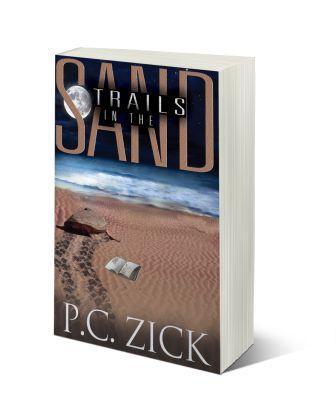
Florida’s sea turtles saved from oil spill in Trails in the Sand



